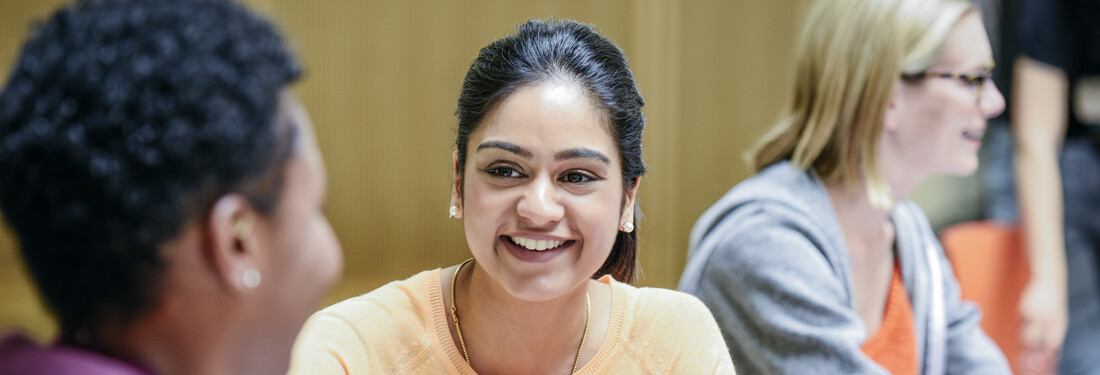Why the project profession needs female mentors

For me, becoming a mentor was a natural transition from working on an individual on a project. You have this sense of honour when being asked to be someone’s mentor. Ultimately, they look up to you and you have (or the potential to have) an influence on their path. It’s important for mentors to remember the ‘why’. Why has this person picked you? And why did you say yes?
I recently relocated to Singapore to take on a new role as the Asia lead for life sciences. I went through a period of reflection beforehand about what lay ahead of me: the new country, new role and new experiences I would soon embark on. But I also looked back at my journey to reach this point and, most importantly, the people I’d met along the way. Without the mentors and mentees I’d known, I wouldn’t have taken the leap, or advanced as fast in my career. My new role requires me to drive growth in an emerging market by building relationships and capability and advising clients on solutions to overcome key risks and issues. To navigate this in a new region I’m leveraging my global experience and network to provide the best service to our clients.
A mentor can have a massive impact on an individual. You just might not always see it. Saying farewell to my mentors and mentees (albeit just the in-person interaction) made me realise how valuable these relationships can be. I keep in contact with them all around the world. It provides a global perspective on how different markets in different regions work, and allows us all to continue learning from each other.
The value of mentoring in projects, programmes and portfolios is well understood. APM’s Dynamic Conditions for Project Success explains how project professionals should dedicate time and effort to informal mentoring of future talent, to create a legacy effect to a project and support long-term success. However, evidence shows that creating opportunities to women to learn from other women is the best way forward. One study on improving career development through a women mentoring programme in the construction industry found that, while a women mentoring programme would be a positive for women in this sector, an inadequate number of female mentors was a barrier. Another described the interpersonal barriers that women may encounter during interactions with potential mentors, such as lack of perceived similarity. Because mentors are typically of higher organisational status and, therefore, more likely to be male, female protégés may find it harder to identify with their mentor, something that is critical to the relationship.
The difference a female mentor can make
Having a female mentor would have benefitted me in the early stages of my career, because people learn best and feel most inspired by people who remind them of themselves; a theory supported by psychological studies. Positive learning outcomes are not only influenced by how knowledgeable someone is, they can also be affected by how relatable the mentor is perceived to be.
When I was breaking through into the world of work, there were no female mentors in senior positions.
Why did it matter to me if my mentor was a woman? For me, it was more about the personal side of things rather than the technical side. Questions like ‘who do I want to be?’ and ‘what kind of career do I want to have?’ I wanted to learn from someone who could embody those answers. I wanted a role model, someone to be a source of inspiration.
I also feel that it’s important for women to learn from someone who has experienced a similar emotional journey. We’ve all seen the statistics that women will look at a job description and not apply unless they think they’re an exact match, whereas men are more likely to go for it if they’re not. Women need mentors who inspire them to overcome those doubts and grow at a faster pace than they think they otherwise could.
The value of learning from people of all genders is certainly not lost on me. This isn’t about pitting genders against each other. I’ve been lucky to work with and be mentored by many excellent male colleagues over the years too. It’s important not to limit oneself to only having one mentor because it’s possible – maybe even beneficial – to learn from multiple people with different skillsets. Having a panel of mentors maintains diversity of thought and it helps to unlock your potential, or even pursue a path you never considered.
Ultimately though, having more female mentors for project and programme managers will only be a good thing. It will benefit the profession as a whole by supporting female recruitment, retention and advancement. This will increase diversity and widen the recruitment pipeline, making more project talent available to employers. Turner & Townsend’s mentoring scheme is a positive example of this. We have a mentoring scheme where staff members are matched to people depending on what we, as mentees, want to get out of it. Reverse mentoring is also encouraged, which enhances skills in areas such as digital and education on cross-generational attitudes, and the impacts these have on work and life. Depending on the environment you’re working in, you might be mentored by someone who is client-facing, or who is more technically minded. Ultimately it must align with your goals.
Two female mentors I’ve known were a driving force behind me taking the leap and moving to Singapore. They shared their experience of international moves and helped me with the core building blocks to set up for success and fulfil my potential. Having experienced the benefits of having incredible role models to look up to and learn from has encouraged me to try and be that figure for others as they embark on their career journey.
Whatever company someone works for though, having access to mentors who have been in the same position they’ve been in is important. That’s what makes it relatable.
If you’re a project professional who’s interested in joining the APM Mentoring Programme as a mentor or learner, visit our Mentoring Programme page for more information. For those seeking a mentor and not sure what to do? Just ask, if there is someone who you look up to ask them to be your mentor and explain why and what you look to gain from them.


0 comments
Log in to post a comment, or create an account if you don't have one already.